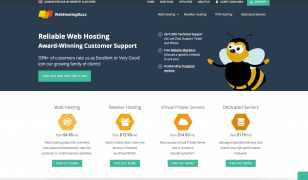Why Fast Server Speed is Important for SEO Rankings
Posted on 16 Sep 2014 by Adam
As you may already know, Google (and other search engines) use page load speed as a ranking factor when deciding where to place your website in SERPs (Search Engine Results Pages), meaning if you care about SEO and want to see your website appearing in Google for certain keywords you’re targeting, you need to ensure your pages are loading fast for users.
Users are demanding more and more from modern websites. I know personally, if it takes more than a few seconds for a webpage to load, I’ll take my business elsewhere. So you need to be constantly considering the speed of your website when you’re making any updates. Whilst this post does focus on the SEO reasons behind keeping your website fast, it’s important to remember that your visitors will appreciate it too – after-all, who doesn’t like a fast website?! 🙂
So here are a few quick tips for ensuring your website’s pages load quickly:
- Make sure you’re not overloading your server – know when it’s time to upgrade your plan!
- If you’re hosting a high-traffic website on shared web hosting, you should definitely be considering upgrading to a VPS or dedicated server, which will be able to handle the load with ease. Shared hosting might ‘choke’ with the number of HTTP (webpage) requests it is receiving, resulting in pages loading slower for users – maybe even not loading at all.
- Use software such as Pingdom, New Relic or Boundary to monitor your server.
- Make sure your developer considers page load speeds at every stage of building and updating your website. Gzip compression should be enabled as standard these days.
- Use tools such as Google’s PageSpeed Insights and Pingdom Tools to find out how well your sites are performing compared to others.
Causes of slow websites
1. Code quality
If your website is loading slowly, you should first check that the code behind the website is of good quality before looking at the next step.
If you’re using WordPress, try installing a different theme to see if the pages load faster. In many cases, certain themes can have compatibility issues, or might just be badly coded.
2. Quality of Web Hosting & Bandwidth
Secondly, you should look at the quality of your web hosting and web server itself.
You pay for what you get. If you’re on a shared hosting plan with the cheapest web host you can find, you should expect the host to squeeze in as many accounts as possible onto the server.
Unfortunately for you, this means many other users will be sharing the same bandwidth and physical connection as you. Think of the bandwidth/connection as a water pipe. There’s a limit to how much water can flow through the pipe at a time. The more people want the water at the other end, the less share they’ll each receive.
Why not try a VPS (Virtual Private Server) for a month, just to see if you notice an improvement in load times? A VPS can be thought of as a meet-in-the-middle between shared hosting and a full dedicated server. Less accounts are put on each server, so you’ll usually experience faster page load times, whilst paying a fraction of the cost incurred by a dedicated server.
Additionally, if you run a popular website which gets visitors from around the world, you should consider using a CDN (Content Delivery Network).
and who doesn’t like a website that loads fast?! 🙂
Why An SSL Certificate is Important for SEO Reasons
31 Aug 2014 by Adam
Update on SSL v3 “POODLE” Vulnerability Fix
22 Oct 2014 by Adam





